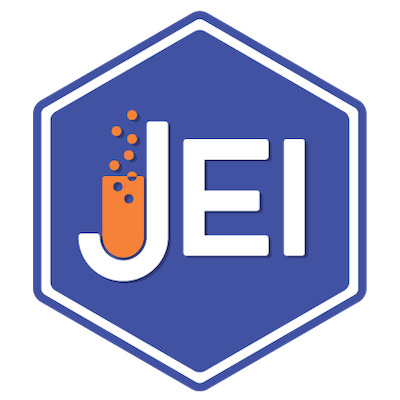AI Research
Explore data-driven research by formulating questions, building predictive models, and analyzing real-world datasets. Designed for grades 11-12, this program offers hands-on experience, expert mentorship, and networking opportunities with industry professionals.
PROGRAM HIGHLIGHTS
- Hands-on Experience: Gain practical insights into data-driven research with machine learning and AI.
- Research Skills: Formulate research questions, and collect, collate, and analyze publicly available datasets.
- Expert Mentorship: Receive guidance from seasoned researchers in academia and industry.
- Networking Opportunities: Engage with guest speakers and professionals from academia and industry.
PROGRAM STRUCTURE
- Duration: 7 weeks, 2 hrs (Mon to Fri)
- Expected time commitment: About 15 hours per week.
- Format: All sessions are conducted live online via Zoom, ongoing grad student TA support live and via Slack.
- Content: Foundational AI/ML concepts, illustrative case studies of AI/ML in the field, guest speaker interactions, hands-on empirical research.
REQUIREMENTS
- High school Junior/Senior having taken Statistics and Math (Pre-calculus)
- Prior programming experience (demonstrated via a certificate of completion)
- Experience with data analysis (demonstrated via a presentation)
SCHEDULE & FEES
- June 23 to Aug 08 – REGISTRATION CLOSED
- Fee: $1000
OUR RESEARCH ADVISORS

Ganesh Nagarajan
Senior Director, Plastics at WM
Ganesh Nagarajan brings over 30 years of experience in the plastics industry, covering the entire value chain from the petrochemical sector to waste management. He holds a Ph.D. in Chemical Engineering and an Executive MBA. Dr. Nagarajan has worked across diverse regions, including the Americas and Asia, and has held various roles in product development, sales and marketing, and business management. A long-time advocate for plastics recycling, he remains a leading voice and active participant in numerous industry forums and initiatives focused on plastics circularity.

Srilatha Swami
Scientist, x-Stanford University School of Medicine
Srilatha holds a PhD in Biochemistry from India and an MPH from UC Berkeley. Over the past 30 years, her research has been dedicated to cancer, with a primary focus on breast cancer and its treatment. She began her career studying nutrition, cardiovascular diseases, and diabetes mellitus before transitioning to oncology. She has a deep passion for mentoring high school students, inspiring them to pursue careers in science. It brings her great joy to be part of DIYA Research, where she can continue working with the students.

Mahesh Godavarti
Impact Entrepreneur,Voice Applications and Speech Science Research Expert
Mahesh holds a PhD in Electrical Engineering and an MS in Mathematics from the University of Michigan. As a technical engineering leader in the Collaboration AI group at Cisco, Mahesh focuses on advancing AI-driven communication technologies. His research interests span machine learning, natural language processing, and large language models, building on a strong background in mathematics, signal processing, speech processing, and speech recognition.

Richa M
AI, Progressive
Richa is a Lead Data Scientist at Progressive, driving Generative AI innovations that transform business operations. She holds a Master’s in Computer Science and a Bachelor’s in Computer Engineering from UIUC, with experience spanning predictive modeling, Responsible AI governance, and large-scale machine learning applications. She has published research on distributed systems, taught NLP at UIUC, and mentored aspirational data scientists. Passionate about AI education, Richa is dedicated to empowering the next generation of researchers to harness AI effectively and responsibly.

Bhavya
AI Research Scientist, IBM Research
Bhavya is an AI Research Scientist at IBM Research in New York. Prior to joining IBM, she earned her PhD in Computer Science from the University of Illinois at Urbana-Champaign. With extensive experience in developing AI-driven solutions across diverse domains—including education, IT operations, healthcare, and finance—she specializes in leveraging textual data to build innovative systems and methods.

Vipul Chaturvedi
Senior Data Scientist, Intel Corporation
Dr. Vipul Chaturvedi is a leading researcher in material science and engineering, holding a PhD from the University of Minnesota (2021) with a minor in electrical engineering. He has authored over 11 scientific publications, garnering more than 135 citations. He has also served as a referee for numerous peer-reviewed journals in condensed matter physics and materials science fields. Currently, he holds the position of Senior Data Scientist at Intel in Portland, Oregon. As a data scientist, he leverages his domain expertise in materials science and electrical engineering, combined with advanced data analytics and machine learning tools, to lead scientific research into novel semiconductor device architectures. He is a strong advocate for integrating data science, machine learning principles, and AI tools into various interdisciplinary domains to drive scientific breakthroughs.
Curriculum Overview
Monday - Friday | |
Week 1 | Literature review and research question formulation. |
Week 2 - 3 | Data Collection, cleaning, exploratory data analysis; Guest speaker. |
Week 4 - 5 | Modeling with ML (Decision Tree, Random Forest); Guest speaker. |
Week 6 | Parameter tuning, finalizing analyses; Guest speaker. |
Week 7 | Prepare report and presentation; Guest speaker. |
Targeted Journals for Research Paper Publication

Journal of Emerging Investigators

Neural Information Processing Systems

International Journal of High School Research

Open-access Repository of Electronic Preprints
Student Publications
To maintain a sustainable society, environmental friendliness is necessary, an effort that all countries must take part in. The effort must be pioneered by developed nations with the resources to enact sustainable policies, reduce emissions and conserve energy, from which developing nations will follow the eroded path. Recognizing the factors that promote environmental friendliness is necessary for researchers, policymakers, and activists alike.
Several past studies have examined the relationship between environmental performance and various nationwide factors such as economic strength, education, and corruption. In this paper, however, we introduce the machine learning approach Multiple-Linear Regression, allowing several variables to be used in tandem. We constructed a dataset using a variety of variables from a variety of sources.
2024 Research Projects
Explore Our Other Programs
AI Exploration
Dive into data visualization and real-world case studies, with a capstone project. No coding required.
Grades 7 - 10
Python for AI
Learn Python programming fundamentals, including data types & control flows, with project.
Grades 7 - 12
AI FORGE
Explore ML models, predictive modeling, and hyper-parameter tuning in a USGs-focused capstone project.
Grades 11 - 12
AI Insights
Master data cleaning and visualization with pandas and seaborn, concluding with UNSGs capstone project.
Grades 9 - 12


